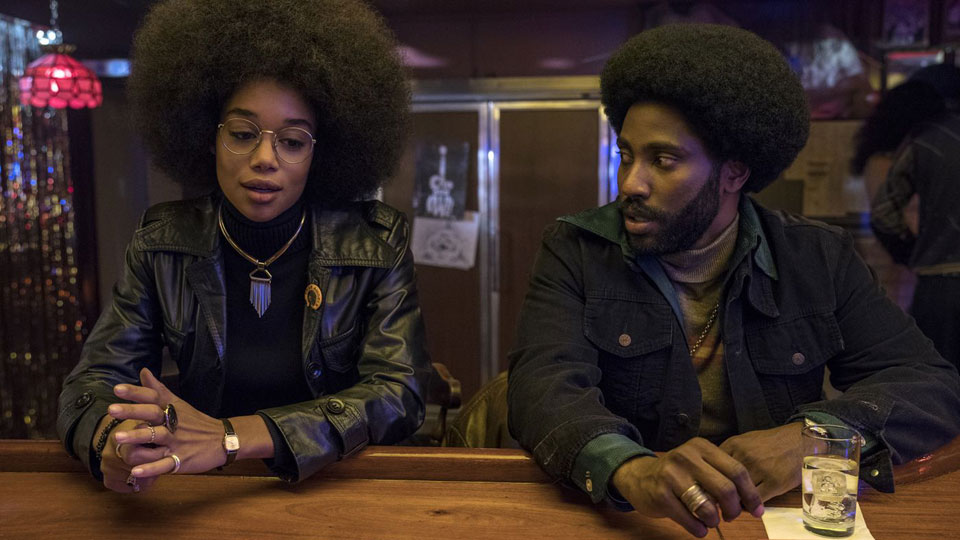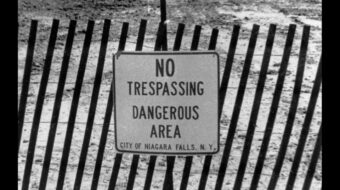
Spike Lee’s new film BlackkKlansman was released last Friday, August 10, to overwhelmingly positive reviews and public acclaim. The movie is based around the true story of a Black police officer who was able to infiltrate the Ku Klux Klan and become an official registered member of the white supremacist organization. The film currently scores at 97% on Rotten Tomatoes and has been praised by viewers worldwide.
The story behind the film is fascinating on its own: It’s the only known case of an African American being a registered member of the Klan. The real-life Ron Stallworth has interviewed with multiple news outlets about his undercover journey to win the trust of former Grand Wizard of the Ku Klux Klan, David Duke. During the late 70s, when Stallworth was working as a detective in Colorado Springs, he spent days talking to Duke over the phone and developing a relationship. He hit a barrier, however, when he was asked to meet local members of the Klan. Stallworth recruited fellow officers to act as his “white avatar” and had them attend several local chapter meetings under his name.
The film does an excellent job of balancing both the serious nature of the violence inflicted by the white supremacist movement and the absurdity of the unfolding investigation. Lee’s writing is self-reflective, and at times snarky, serving up witty dialogue like “with the right white man we can do anything.”
BlacKkKlansman pays tribute to Spike Lee’s older cinematic styles of blaxploitation. The direction of the film mirrors some of his original body of work, such as his 1989 film Do the Right Thing, which dealt with similar themes of Black oppression, racism, and police brutality. BlacKkKlansman differs in tone, however, by appealing to a neoliberal fanbase. The film places a Black cop at the center of a story about racism, all while the protagonist works as an agent of a racist institution.
The fact that police in the film are consistently portrayed as heroes is being hotly debated on the internet. Sorry to Bother You director Boots Riley commented on the context of the film’s premise in a since-deleted tweet, “After 40 years of cop shows and cop movies, did we really need one more movie where it’s supposed to be about racism but the cops are the actual heroes of the film and the most effective force against racism?”
Although the comment has been taken down, Boots begs us to examine a bigger question at hand: Does the film ignore the direct role that police have played in upholding white supremacy? This discussion is addressed briefly throughout the film, most directly when Stallworth’s fictional love interest, Patrice, challenges his role in the academy.
Patrice, played by up-and-coming actress Laura Harrier, is the president of the Black Student Union at Colorado College who questions the tactical validity of being able to create change “from the inside.” Patrice’s character has a lot of potential, but isn’t given the opportunity to flourish into anything other than a love interest. Instead she is depicted as a “radical” trope who serves little purpose other than to juxtapose the protagonist. Whereas Stallworth, the hero of the story, is presented as a pragmatic, working-class bloke who pushes the envelope but never oversteps his bounds.
In this sense, I think the film falters. Much of the premise remains focused on the “good cops” instead of highlighting a system that is institutionally violent toward Black communities. The film even goes to far as to gloss over the fact that the investigation was prematurely shut down, and Stallworth was told never to speak about his involvement. This remained true until after his retirement in 2005. Only in 2014 he decided to publish a book chronicling his experiences, Black Klansman: Race, Hate, and the Undercover Investigation of a Lifetime.
Nevertheless, BlacKkKlansman leaves viewers confronted with the reality of our current political climate. The release date was purposely scheduled a year to the day that Charlottesville, Va., was overrun by white supremacists. The final minutes of the movie are devoted to showing news clips of Nazi marches, and violent clashes with counter protestors—a glaring reminder that white supremacy is not an issue of the past. Though the movie lacks nuance in its discourse around racism, Lee obviously is hoping to inspire a broader national conversation, and he has certainly succeeded.

MOST POPULAR TODAY


Zionist organizations leading campaign to stop ceasefire resolutions in D.C. area

High Court essentially bans demonstrations, freedom of assembly in Deep South

Afghanistan’s socialist years: The promising future killed off by U.S. imperialism

Communist Karol Cariola elected president of Chile’s legislature






Comments